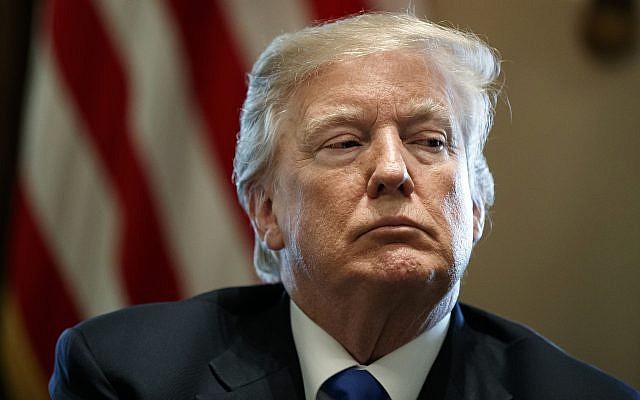Moscow believes Washington already set on withdrawing from accord, Deputy FM says, vowing to fight to keep agreement alive
MOSCOW — Russia on Saturday said Washington would be making a grave mistake by pulling out of the Iran nuclear deal, adding that Moscow would work hard to keep the landmark agreement alive.
Deputy Foreign Minister Sergei Ryabkov criticized remarks by US President Donald Trump, who on Friday said the US will not reimpose nuclear sanctions on Iran for the moment, but would withdraw later this year unless the terms of the deal are changed.
“This could be one of Washington’s big foreign policy mistakes, a big miscalculation in American policy,” he said.
Under the 2015 deal with Russia, the US, China, France, Britain, Germany and the EU, Iran agreed to curb its nuclear program in exchange for lifting of a raft of international sanctions.
Trump on Friday gave an ultimatum to “either fix the deal’s disastrous flaws, or the United States will withdraw.”
America’s allies say the accord is the best way to thwart Iran’s nuclear ambitions and see it as a victory for multilateral diplomacy. Tehran denies it is seeking to develop atomic weapons.

But Trump argues that his predecessor Barack Obama gave away too much to Iran in sanctions relief, without forcing the Islamic republic to end its ballistic missile program and support for militant groups.
Ryabkov said Moscow must unite with Europe and China and undertake “intense work” to keep the existing plan intact and decried what he said was a US attempt to strongarm the situation.
“In what we heard yesterday, I don’t see any invitation for Iran to enter dialogue,” he said. “This defies the logic of the agreement.”
“Russia will do everything in its power to save the agreement,” he said.
Iran said Saturday it “will accept no changes” to the deal with world powers and will not allow the accord to be linked to any non-nuclear issue.
In a statement Iran’s Foreign Ministry said, “The Islamic Republic of Iran stresses clearly that it will take no measures beyond its commitments under the JCPOA [Joint Comprehensive Plan of Action — the deal’s official name] and will accept no changes to this agreement now or in the future and will not allow that the JCPOA be linked to any other issue [than the nuclear issue].”




The Article misleads by omission. The President emphasized that the sunset clause has to be taken out and there needs to be verifiable red lines for the agreement to be acceptable and I agree. As things stand, Iran has a legal path to the bomb in ten years — with already upgraded reactors shortening the breakout time — and no verification process; we actually have no idea what they have been up to.